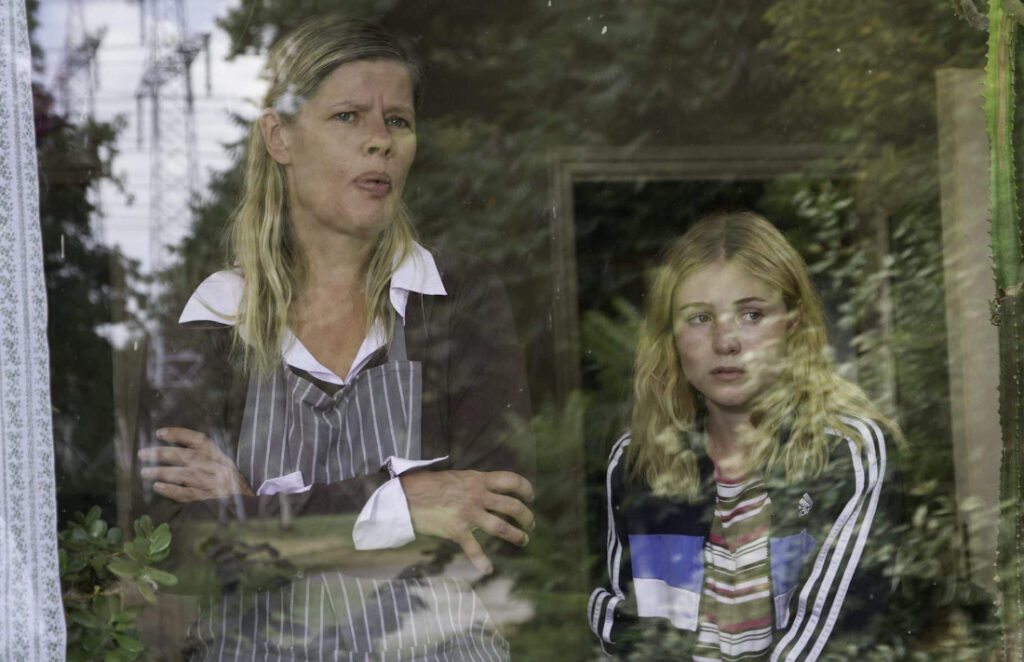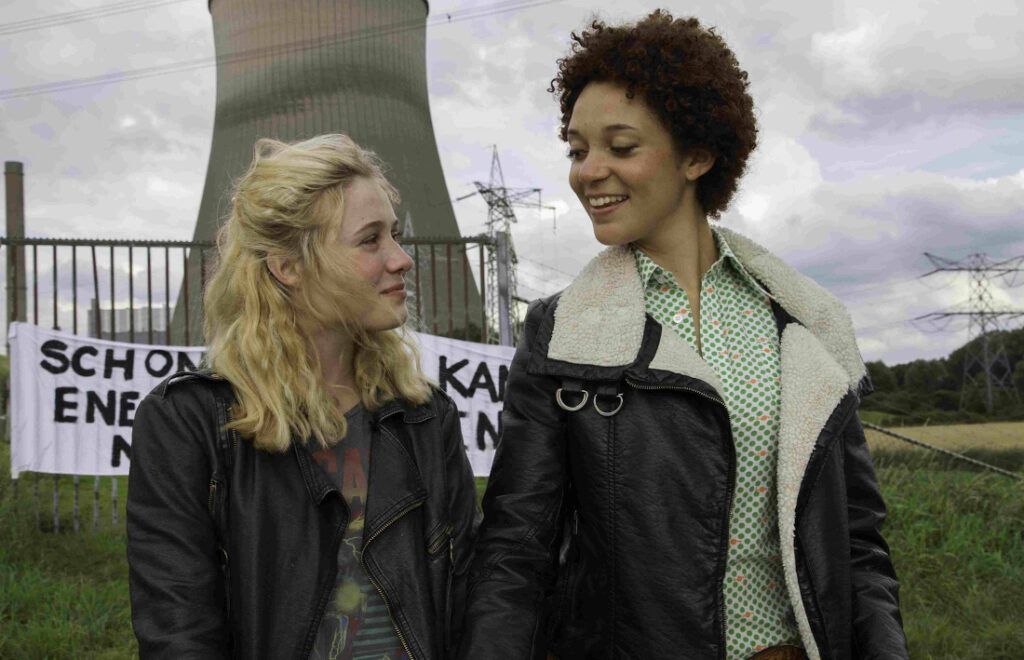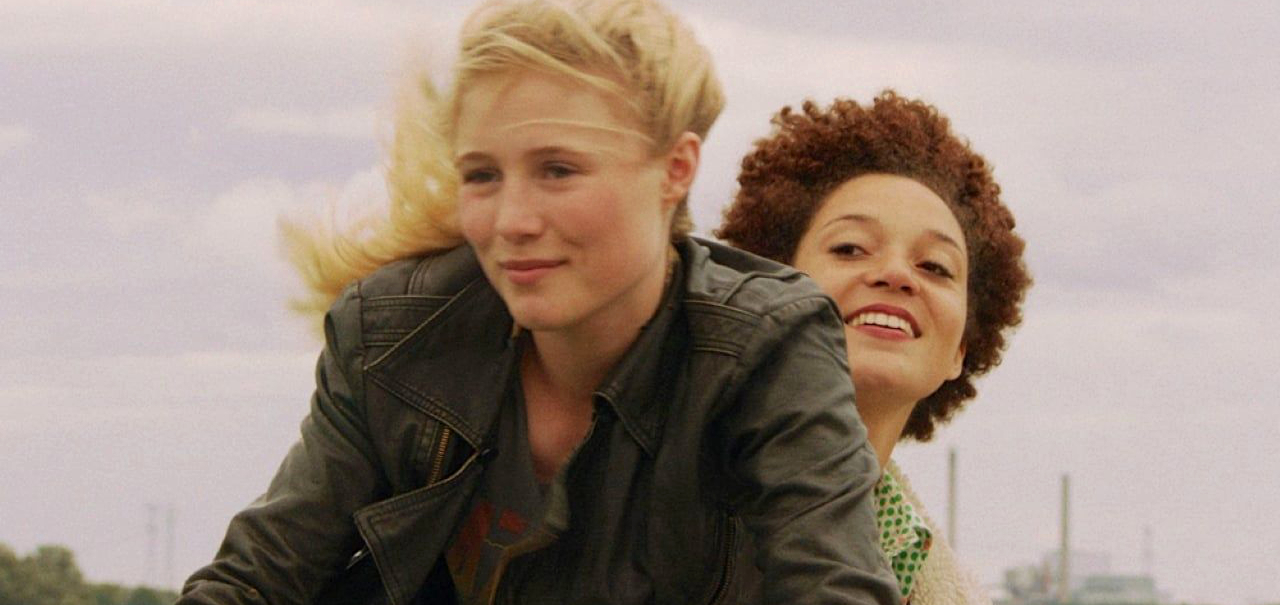Summer is one of the last remaining 2010s European sapphic teen films I haven’t already seen. This is a subgenre I’m very familiar with, to the point that many of the films read as cliche. In many ways, Summer falls comfortably into all of my expectations of the subgenre. Though some of the film’s secondary themes do elevate the movie for me. I do not think Summer is the objective strongest of this subgenre. However, the film spoke to me and my personal experiences more than most.
17 year old Anne is a quiet girl. Much of her observations and comments come in the form of voiceover instead of actual dialogue. Anne’s town is supported by a power plant, which creates controversy among workers versus protesters. Something of a late bloomer, Anne feels out of place with the growing focus on sexuality from her peers. Of course, Anne then meets a girl named Lena from the big city. And Lena awakens feelings in Anne she was previously immune to. However, Anne’s often negative experiences with sexuality and some homophobia means that these feelings are a struggle. Anne’s burgeoning sexuality is often unwelcome and scary as opposed to something Anne can embrace and celebrate.

Here are some of the elements of Summer that I find heavily in finding of the European queer teen subgenre: a quiet, shy protagonist; a more worldly female love interest; a focus on outsider observation from the protagonist to her peers; a plot that primarily takes place during the summer months, two girls riding a motorized bike; a kiss that happens in a beautiful, outdoors location such as by a lake or a field. All this to say that I’ve seen many of the beats of Summer before. And multiple times at that. Nobody’s ever made a parody movie of European sapphic teen films but I’m starting to think I could do it. None of the tropes or cliches are funny exactly, but it is funny to me how much similarity these movies can have.
The element in Summer that really spoke to me was Anne’s troubled relationship to teen sexuality. The way Anne’s peers and especially her male friends discuss and engage with sexuality is something that causes Anne feelings of disconnect and sometimes, outright fear. Part of her worries surround basic heterosexuality, which she doesn’t feel connected to. But Summer also deals with rape culture and the difference in how teen boys and girls discuss and think about sex. Anne’s male friends talk about women and sex in a way that’s degrading or outright violent. And at one point, Anne witnesses and interrupts a rape. Traumatic enough on its own, the way her peers talk about the incident is deeply upsetting. Especially in how they talk about the girl involved. With all of these factors, Anne understandably feels discomfort in the possibility of engaging in sex herself, especially with another girl.

On a visual level, Summer doesn’t remotely stand out. I actually think it’s one of the weaker films in this subgenre on a purely visual level. Especially when you have the quiet, observational protagonist, I enjoy a bit of visual flair. Films like Seventeen or Supernova offer some really beautiful shots and atmosphere which is a treat to watch. There’s nothing wrong with the way that Summer is shot, but there’s also nothing about the visuals that stand out.
Ultimately, Summer is a competent film in a pretty overcrowded subgenre of other competent films. Summer is a pretty middling entry over all; not one of the all time greats, but still a good movie on its own. I do really connect with the themes of how teen culture and attitudes towards sexuality can be a scary, isolating experience for girls and especially, queer girls. But outside of that theme and my own connection with it, Summer doesn’t do a whole lot to stand out from all the other European movies about two girls riding an electric bike to kiss in private down by the lake during the summer season. Seriously, there are so many of these movies.
Overall rating: 6.4/10
Other WLW films in similar genres
European teen romances
Fear of sexuality and rape culture


Be First to Comment